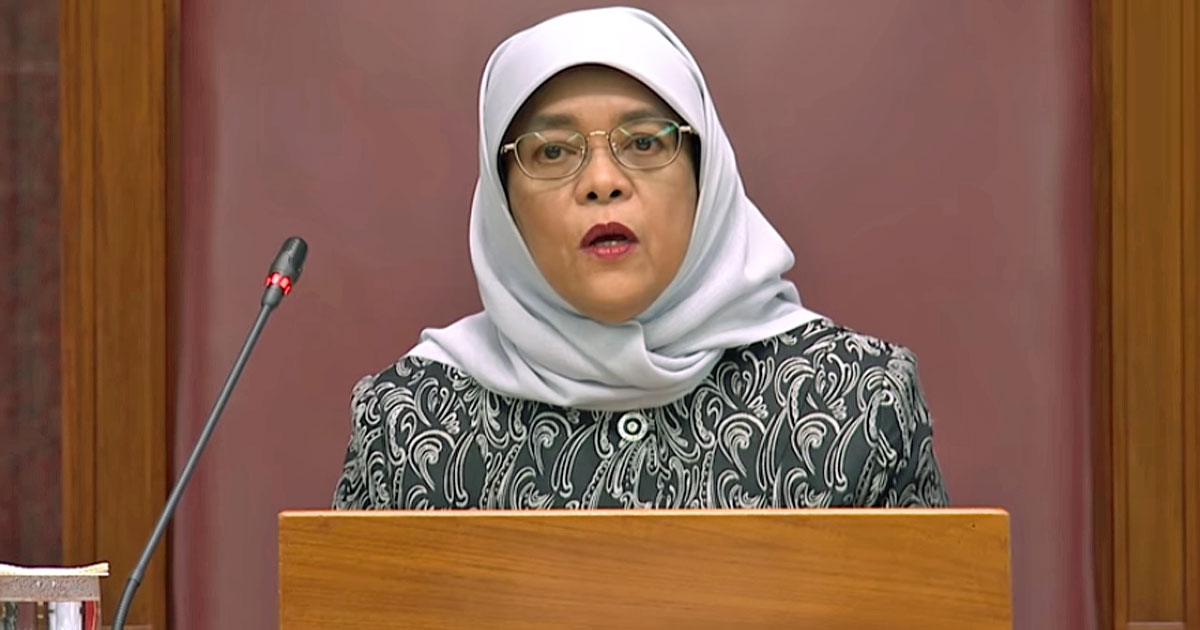President Halimah Yacob said Singapore could consider tapping past reserves during this Covid-19 outbreak to help its people and businesses “bleeding” from the impact.
“Many of our companies, particularly those related to the tourism industry, but more broadly other sectors as well, are bleeding because of disrupted supply chains, rapidly falling demand and tightening cash flows,” Halimah said in a Facebook post on March 11.Her post follows hot on the heels of an announcement by Deputy Prime Minister Heng Swee Keat, who signalled the possibility of tapping past reserves for a second stimulus package to combat the economic effects of the virus.
“If our public health is at stake and our people’s welfare affected, we need to do the necessary,” Halimah said.
Singapore allocated S$6.4 billion in February to support its medical response, and finance two special packages to aid businesses and consumers.
She also referenced the oil prices crash that has “seriously aggravated the situation”.
The Singapore president has the power to veto or disagree with the government’s proposals under the current constitution.
These areas include fiscal matters relating to the reserves.
The constitution also protects past reserves accumulated under previous terms of the government.
Singapore doesn’t disclose the full amount of its reserves.
While the central bank and Temasek Holdings, the city state’s investment company, publishes the size of the funds they manage, sovereign wealth firm GIC doesn’t, Bloomberg highlighted.
The government has defended against charges that it’s “excessively prudent” with using its reserves.
It has argued that the city state’s saving mindset keeps it prepared to cushion the economy in times of crisis.
The last time the government tapped into the reserves was in January 2009.
Singapore faced its worst recession then amid the global financial crisis.
The government used S$4.9 billion of reserves to help fund property and personal tax rebates, as well as cash handouts to help businesses and workers.
If you like what you read, follow us on Facebook, Instagram, Twitter and Telegram to get the latest updates.
